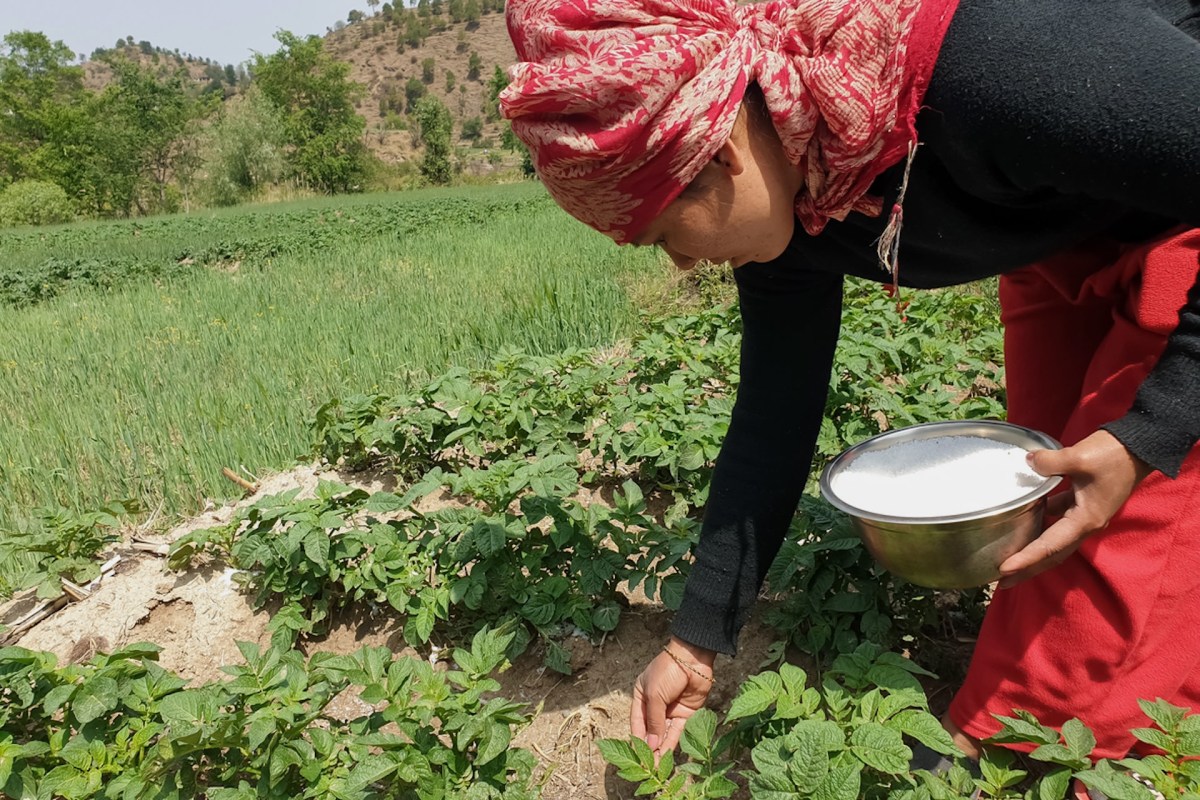A group of women is leading the way to bring clean energy to farms in India, and traditional expectations surrounding their societal roles haven't deterred them from their mission.
As online magazine Reasons to Be Cheerful detailed, self-help groups (SHG), like Shiv Ganga Samuha Sichai Samity, are facilitating the installation of solar pumps for crop irrigation.
As a result, water has become reliably available at an affordable price.
"The installation of the solar pump allowed us to diversify our crops, particularly by growing vegetables [including cauliflower, pointed gourd, coriander, eggplant, and bitter gourd], significantly boosting our family's income," SHG member Babli Devi told the online publication.
According to Sunaina Devi, her self-help group began in 2013. The 10 members started saving money through the Aga Khan Rural Support Program-India, or AKRSP-I, a nongovernment development organization that supports rural communities — and particularly women.
The SHG from Bandra block of Muzaffarpur district installed its first solar irrigation pump in 2016 for around $1,562.
"Now we have a reliable source of irrigation for agricultural activities, and we can supply water to over hundred farmers [at 100 Indian rupees per hour], which is a valuable source of supplementary income for us. This generates an annual income of INR. 130,000 for the group," Sunaina Devi told Reasons to Be Cheerful.
The women of the SHG take turns managing pump operation and pipe distribution, which are usually tasks of the men in the community. Anita Devi, a member of an SHG in Chandauli, told the online magazine that discriminatory comments are some of the hurdles her group has had to overcome.
Farmers in groups have also had to deal with a lack of local infrastructure for maintenance support, as well as the inability to obtain bank loans. Many have gotten informal high-interest loans from relatives and neighbors in order to get the ball rolling, according to the publication.
However, the projects have brought their members a greater sense of well-being, economic independence, and extra income. In the state of Bihar, solar pumps have increased revenue by 30% to 40% over the past five years, cut irrigation costs, and reduced harmful pollution from dirty fuel–powered pumps.
"Embracing more technology can transform agriculture and the livelihoods of smallholder women farmers," Sunaina Devi told Reasons to Be Cheerful. "We need innovations where women play a key role."
India is aiming to phase out highly polluting fuels like gas, coal, and oil, with the government announcing in its climate action plan that 50% of electricity should come from other sources by the end of the decade.
As detailed by AKRSP-I, changes in climate primarily linked to dirty fuels have heavily impacted rural populations that rely on agriculture for income. Extreme weather events like droughts, floods, and unusual rainfall patterns have become more frequent as a result, meaning these communities have needed to adapt.
U.N. Environment Programme researcher Parimita Mohanty believes these SHG projects are showing a way forward.
"As the success in Bihar has shown, this approach helps to build resilience in communities, increasing their ability to adapt in the face of environmental challenges," Reasons to Be Cheerful explained in a summarization of Mohanty's thoughts.
Join our free newsletter for weekly updates on the coolest innovations improving our lives and saving our planet.









